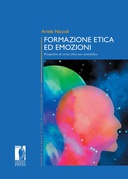Explore

Affectivity – especially the emotions – are proved to be a key-point of ethical formation. This book aims at clarifying which thesis the neo-aristotelian Virtue Ethics hold about emotion education, by integrating philosophy of education, philosophy of emotions and moral epistemology. Virtue Ethics, compared to deontology and utilitarianism-consequentialism, offers the more appropriate framework to conceive the relations between education, emotions and ethics. The volume discusses cognitive-evaluative theories of emotions and address the anti-rationalist challenge, based on empirical evidence about how emotions impact on moral judgments. Anti-rationalism, it is argued, is incompatible with the purpose of shaping the emotions looking at our best moral reasons. Then, two Aristotelian educational theses are put forward: all the emotional dispositions – both ‘positive’ and ‘negative’ – should be cultivated, and all the emotional dispositions admit an appropriate moral form.
This book is included in DOAB.
Why read this book? Have your say.
You must be logged in to comment.
Rights Information
Are you the author or publisher of this work? If so, you can claim it as yours by registering as an Unglue.it rights holder.Downloads
This work has been downloaded 188 times via unglue.it ebook links.
- 96 - pdf (CC BY) at Unglue.it.
- 92 - pdf (CC BY) at fupress.com.
Keywords
- Aristotle
- Emotions
- Moral education
- virtue ethics
Editions

